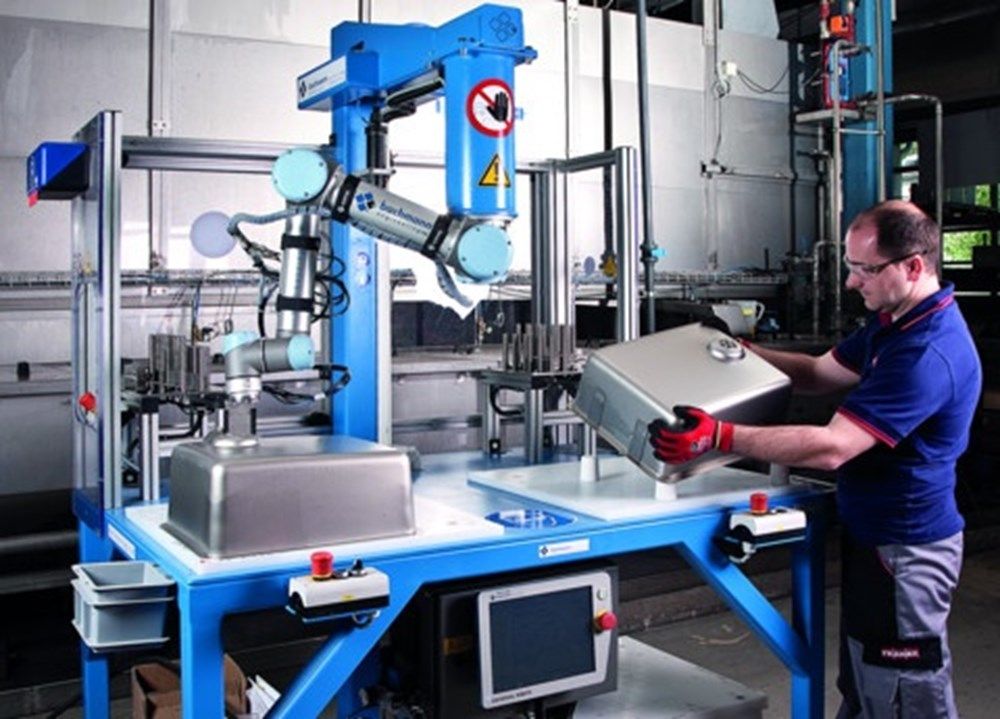How Robotics is Transforming Manufacturing
In recent years, robotics has become an integral part of the manufacturing industry. By automating various processes, robots have revolutionized the production line, leading to increased efficiency, lower costs, and improved quality. This article explores the impact of robotics on manufacturing and how it is transforming the industry.
Increased Efficiency and Productivity
One of the key benefits of incorporating robotics into manufacturing processes is the significant increase in efficiency and productivity. Robots are capable of working around the clock without the need for breaks or rest, leading to a continuous flow of production. This results in faster turnaround times and higher output levels, ultimately increasing overall efficiency.
Improved Quality Control
Robots are highly precise and accurate in their movements, which makes them ideal for tasks that require consistent quality control. By using robotics in manufacturing, companies can ensure that each product meets the required standards and specifications. This leads to a reduction in defects and rework, ultimately improving the overall quality of the end products.
Cost Savings and ROI
While the initial investment in robotics may be significant, the long-term cost savings are substantial. By automating repetitive tasks, companies can reduce labor costs and lower the risk of human error. Additionally, the increased efficiency and productivity provided by robots result in a higher return on investment (ROI) over time.
Flexibility and Adaptability
Robots are highly versatile and can be programmed to perform a wide range of tasks. This flexibility allows manufacturers to adapt quickly to changing market demands and production requirements. Whether it’s adjusting to new product designs or scaling production levels, robots offer the agility needed to stay competitive in a rapidly evolving industry.
Collaborative Robotics
Another trend in manufacturing is the rise of collaborative robots, or cobots. These robots work alongside human workers to enhance productivity and safety on the factory floor. By sharing tasks with cobots, employees can focus on more complex and value-added activities, while robots handle repetitive or hazardous tasks.
Conclusion
As technology continues to advance, robotics will play an increasingly important role in the manufacturing industry. By leveraging the benefits of robotics, companies can achieve higher efficiency, improved quality, cost savings, and greater flexibility. As a result, manufacturing processes are becoming smarter, faster, and more streamlined than ever before.
How Robotics is Transforming Manufacturing
The Role of Robotics in Manufacturing
In recent years, robotics has become an integral part of the manufacturing industry. By automating various processes, robots have revolutionized the production line, leading to increased efficiency, lower costs, and improved quality. This article explores the impact of robotics on manufacturing and how it is transforming the industry.
Increased Efficiency and Productivity
One of the key benefits of incorporating robotics into manufacturing processes is the significant increase in efficiency and productivity. Robots are capable of working around the clock without the need for breaks or rest, leading to a continuous flow of production. This results in faster turnaround times and higher output levels, ultimately increasing overall efficiency.
Improved Quality Control
Robots are highly precise and accurate in their movements, which makes them ideal for tasks that require consistent quality control. By using robotics in manufacturing, companies can ensure that each product meets the required standards and specifications. This leads to a reduction in defects and rework, ultimately improving the overall quality of the end products.
Cost Savings and ROI
While the initial investment in robotics may be significant, the long-term cost savings are substantial. By automating repetitive tasks, companies can reduce labor costs and lower the risk of human error. Additionally, the increased efficiency and productivity provided by robots result in a higher return on investment (ROI) over time.
Flexibility and Adaptability
Robots are highly versatile and can be programmed to perform a wide range of tasks. This flexibility allows manufacturers to adapt quickly to changing market demands and production requirements. Whether it’s adjusting to new product designs or scaling production levels, robots offer the agility needed to stay competitive in a rapidly evolving industry.
Collaborative Robotics
Another trend in manufacturing is the rise of collaborative robots, or cobots. These robots work alongside human workers to enhance productivity and safety on the factory floor. By sharing tasks with cobots, employees can focus on more complex and value-added activities, while robots handle repetitive or hazardous tasks.
Conclusion
As technology continues to advance, robotics will play an increasingly important role in the manufacturing industry. By leveraging the benefits of robotics, companies can achieve higher efficiency, improved quality, cost savings, and greater flexibility. As a result, manufacturing processes are becoming smarter, faster, and more streamlined than ever before.


